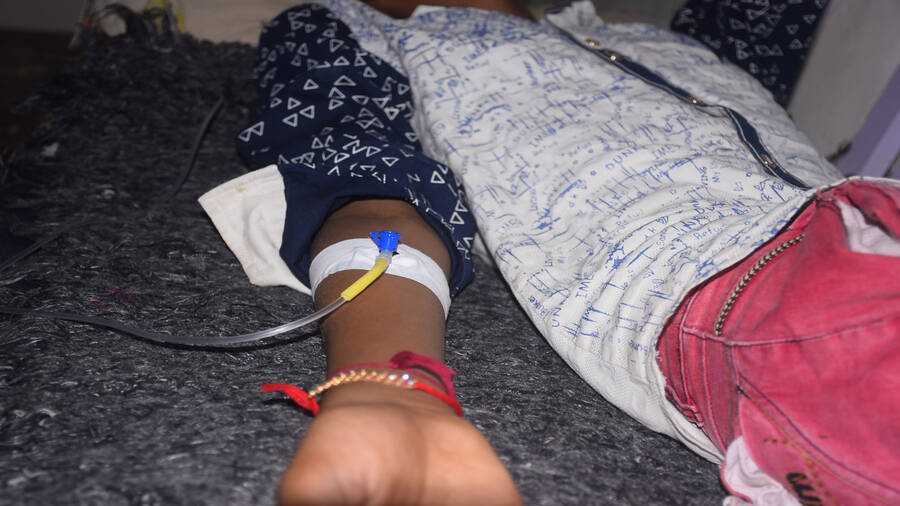At least five babies suffering from respiratory distress died in West Bengal on Sunday.
At least three of them passed away at the Dr BC Roy Post Graduate Institute of Paediatric Sciences, which has for weeks been overburdened with critically ill patients.
The trend of referring critical children to hospitals in Kolkata continues despite an advisory from the state health department asking hospitals in the districts not to do so unless absolutely necessary.
Doctors and officials in the state health department said most of the critically ill children from districts were still being referred to Kolkata. They said this was the reason why there were fewer child deaths in hospitals in districts compared with Kolkata.
A doctor at a hospital in North 24-Parganas district said many parents were taking their children to Dr BC Roy Institute from block primary health centres or sub-divisional hospitals that lack paediatric intensive care units (PICU). A child who is critically ill and suffering from respiratory distress often needs to be admitted to a PICU.
“Five deaths among children with respiratory distress were reported on Sunday,” said an official of the state health department.
Officials said at least three of the deaths were reported from Dr BC Roy Institute.
Two of the children were from North 24-Parganas and one was from South 24-Parganas, according to the death certificates issued by the hospital. A two-year-old boy from Deganga in North 24-Parganas district, who was admitted to the Kankurgachhi hospital on February 13, died of “septic shock in a case of adenoviral pneumonia”. A 2-month-old girl from Deganga died of “acute respiratory distress syndrome”.
A one-year-old girl from Maheshtala in South 24-Parganas district died of “acute respiratory distress syndrome”.
An official at Dr BC Roy Institute said a large number of children being brought to the hospital were from districts, especially North 24-Parganas.
“Parents are arriving here with their children. We cannot deny admission if their condition is critical. We are still admitting many patients from districts,” said the official.
The state health department has repeatedly told officials of the government hospitals in the districts to refer children to government hospitals in Kolkata only if their treatment was not possible there. The message was given in many videoconferences with officials of hospitals in the districts.
The health department issued a written advisory on February 28 saying no paediatric ARI (acute respiratory infection) cases would be referred to a hospital with a better set-up without the knowledge of the MSVP (medical superintendent-cum-vice-principal)/superintendent.
Doctors said the number of paediatric beds in district hospitals was not adequate to treat all patients, especially when the state is witnessing a viral surge among children. Besides, a health department official said, many hospitals do not have paediatric units.
“Even in hospitals that have paediatric units, the number of PICU beds and ventilators is too few compared with the current demand. Parents are taking their children to Dr BC Roy Institute because the patients are in need of better critical care support, which many hospitals in districts are unable to provide,” said a doctor in a hospital outside Kolkata.
A health department official in a south Bengal district said many parents believe that Dr BC Roy hospital provides the best treatment, a reason why so many parents were taking their children to the already over burdened hospital.
There are over 2,500 sick natal care unit beds, 654 paediatric intensive care unit beds and 120 neo-natal care unit beds in the state. Another 75 PICU beds were introduced in BC Roy Institute recently, said a health department official.

